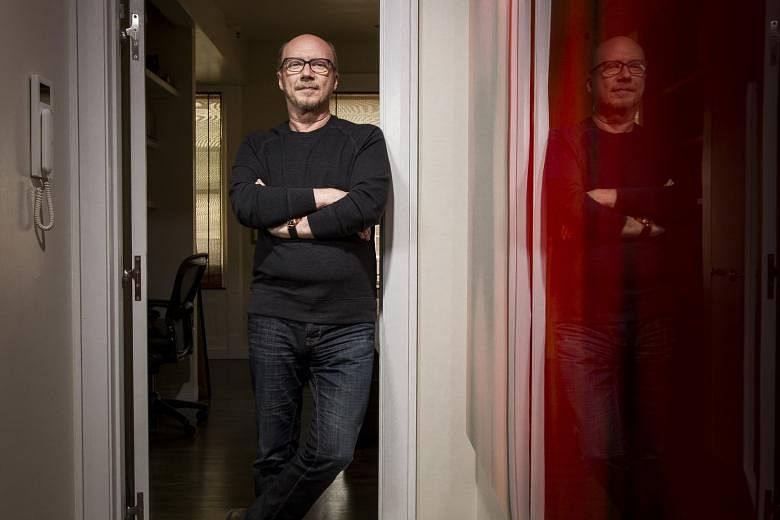When he left and renounced Scientology, director Paul Haggis says the controversial organisation tried to intimidate him into silence.
Yet the Oscar-winning film-maker has maintained his sense of humour about this dark chapter of his life, which he recounts in Going Clear: Scientology And The Prison Of Belief, an acclaimed expose that is up for Best Documentary and six other honours at next month's Emmy Awards.
At a press event for his new television drama Show Me A Hero, the 62-year-old Canadian - one of the first major Hollywood figures to take on the powerful group, whose members include celebrities such as Tom Cruise and John Travolta - smiles when asked about it.
"This is why I'm nervous sitting with my back to a door," he quips. "But my bodyguard's right outside, it's fine."
Speaking to Life and other media in Los Angeles, he chatted about his eventful career, which in 2005 saw him win Best Picture and Best Original Screenplay Oscars for his film Crash just a year after writing Million Dollar Baby, winner of 2004's Best Picture Oscar.
This year, he made headlines again when he was interviewed for the documentary Going Clear, which details alleged abuses by the Church of Scientology against both its members and its critics.
He says being on the other side of the camera for the film - one of the most buzzed-about documentaries of the year - may have made him a better director himself.
"I did identify with actors in that way. And anything that gives you empathy for the folks on the other side of the lens is a good thing."
When it comes to making his own movies, he does not flinch from making tough choices, either. In Crash, he used a series of interlocking stories to explore the race and class divisions that simmer beneath the surface of modern America.
He signed on to direct Show Me A Hero - a series from The Wire creator David Simon - because it tackles this same subject, which is one he says Hollywood still shies from.
In fact, cable television network HBO is "the only place" that would have made the miniseries, which recounts the true story of how a predominantly white community in New York erupted when a judge ordered it to build 200 units of low- income housing for poor minority residents.
"You do not see anybody running out to say, 'Let's do a movie about public housing and racism.' Who's going to do that? Nobody. HBO, for some reason, was brave enough to greenlight this. And that's remarkable," Haggis says.
Yet even after the critical success of Crash, getting financing and distribution for scripts that examine such knotty and politically charged issues did not get easier.
"Of course not, no. Why? That would make too much sense, wouldn't it?" says Haggis, who joins Steven Soderbergh (The Knick) and David Fincher (House Of Cards) as the latest big-name film director to move to the small screen.
He admits his enthusiasm for Simon's previous work meant he said yes to Show Me A Hero "without thinking what it means to direct six hours of television" under a much tighter schedule than on a typical movie."But I think the biggest challenge was I had a script, a wonderful script, that I had to make feel true and real. And without it sounding preachy."
He wanted to make viewers identify with characters on both sides of this racially charged fight.
"If you saw all the opinions and didn't vilify this person or lionise that person and they came across just as human beings, then we would be able to understand it," he says.
"And then perhaps we would not keep making these mistakes over and over again like we do. We can apply common sense."
Although his work often tries to shine a light on social injustice, he describes himself as a "cynical optimist" who does not make movies thinking he is going to change people.
Still, "it would be nice to have them rethink a couple of long-held positions and get people to question things".
"Because we're all told what to believe and then we believe it fiercely because it gives us an identity. And that's what you see in politics now, it's about an identity."
Alison de Souza

